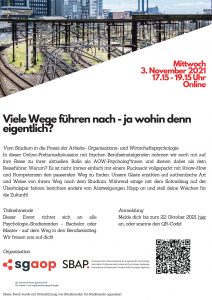This week’s SED colloquium (15 December, 12:00, in-person) will be given by Ivy Defoe, Forensic Child and Youth Care Sciences, University of Amsterdam.
Towards a hybrid criminological and psychological model of risk behavior: The Developmental Neuro-Ecological Risk-taking Model (DNERM)
Adolescents have long been characterized as the stereotypical risk-takers, due to their apparent heightened risk behavior (e.g., delinquency, substance use). Hence, the raising of the minimum age for substance use is a common legal action that presumes that limiting the exposure to substances (i.e., “risk exposure” and accordingly “risk opportunity”) will decrease such heightened adolescent risk behavior. This ecological concept of risk exposure is acknowledged in criminological models—to some extent. However, risk exposure is virtually absent from contemporary psychological models, which focus on neurodevelopment, particularly socio-affective and cognitive control development. Moreover, when theories in these disciplines do consider risk exposure, the ubiquitous developmental (i.e., age-dependent) component of this concept is overlooked. For example, in the real-word, adolescents encounter far more risk-conducive situations (i.e., risk exposure) than children, which could at least partially account for heightened adolescent risk behaviors compared to children. A meta-analysis (Defoe et al., 2015) on laboratory studies provided suggestive evidence for this assertion. Namely, this meta-analysis showed that in laboratory settings—where risk exposure is equal for all participants regardless of age—children and adolescents are generally equally susceptible to engage in risks. Hence, in the above-mentioned meta-analysis, a hybrid Developmental Neuro-Ecological Risk-taking Model (DNERM) was put forward. DNERM posits that age and cultural factors at least partially determine physical and social exposure to risk conductive situations (i.e., physical and social risk exposures). Additionally, these risk exposures predict adolescents’ risk behavior, and this association is potentially moderated by adolescents’ cognitive and affective self-control. Hence, DNERM emphasizes adolescents’ neuropsychological development within its physical- and social- ecology, which is further embedded in a cultural context. This presentation will address DNERM’s aims, which include bridging contemporary developmental psychology models with criminology models to describe the development of risk behavior during the youth period.



























